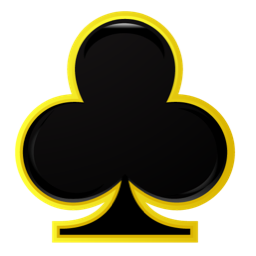What are the Benefits of Mathematics to Poker Players?

We all want the freedom to play poker with a competitive edge. But how do we do it? By mastering the mathematics of poker! From calculating odds and estimating probabilities to analyzing opponents and developing strategies, math is the key to success. Plus, we can’t forget the mathematics of bluffing – the ultimate way to outwit your opponents. Let’s take a look at the role of mathematics in the game of poker.
Calculating Odds
Calculating odds is an essential part of poker, and it relies heavily on mathematics. Knowing the chances of winning a hand is key to making the best decisions. To calculate the odds, we must know the probability of our cards in relation to the opponents’. This requires an understanding of basic mathematics and statistical principles. We must also understand how our opponents’ cards affect our own probability of success. This requires us to analyze the board and use our poker knowledge to assess the situation. Estimating probabilities is an important skill for a successful poker player, and it requires a high degree of mathematical knowledge. Armed with this knowledge, we can make better decisions and maximize our chances of winning.
Analyzing Opponents
Analyzing your opponents’ betting patterns and playing style is an important part of mastering poker, and it can give you the edge you need to win. Mathematics plays a huge role in this analysis, as understanding the odds and probabilities of different situations can help you make the best decisions. Table position, stack size, and the number of players in the hand are all factors that need to be taken into account, and mathematical calculations can help you make better decisions. To make the most of your opponents’ information, you need to be able to accurately interpret it. This requires practice and experience, but mathematics can help you improve your accuracy and effectiveness. As you gain more experience with poker, you’ll develop an instinct for knowing when the odds are in your favor. This is the ultimate goal of studying mathematics in poker: to give you an edge over your opponents. With the right knowledge and experience, you can turn the tables on your opponents and take home the pot.
Developing Strategies
Devising effective poker strategies is key to success at the table. Knowing when to bet, raise, call, or fold can be the difference between winning and losing, so it’s important to be able to develop strategies for any given situation. We can use mathematics to identify patterns and trends in our opponents’ behavior, and use this information to inform our decisions. This can include calculating pot odds to determine if a given call or raise is worth the risk. Using probability to understand the likelihood of a given outcome can also be valuable in making decisions. Ultimately, mathematics can be used to create strategies that give us a competitive edge over our opponents. Transitioning into the next section, we’ll explore the mathematics of bluffing.
The Mathematics of Bluffing
Calculating the odds of bluffing can be a tricky business, but it’s an essential skill to master if you want to be successful at the poker table. Bluffing is an art, but it’s also a science. By applying mathematics to the game of poker, you can make sure that your bluffs are as effective as possible. The basic concept is simple: the opponent must believe that you have a hand that is strong enough to win. The mathematics of poker allows you to calculate the probability of this happening. You can also use game theory to determine the best moves to make when bluffing, and when to back off. With a little practice, bluffing can become a powerful tool in your poker arsenal. Learning the mathematics of bluffing can take some time, but it’s worth it in the end. With the right knowledge, you’ll be able to outplay your opponents and take home the pot.
All in all, we’ve learned that mathematics plays an essential role in poker, from calculating odds to estimating probabilities and analyzing opponents. With its help, we’ve developed strategies and even gotten the hang of bluffing. We can now confidently say that math has made us the poker masters we are today – not that it was hard to begin with. So, if you ever find yourself in a game of poker, don’t forget that math is your ace in the hole!
